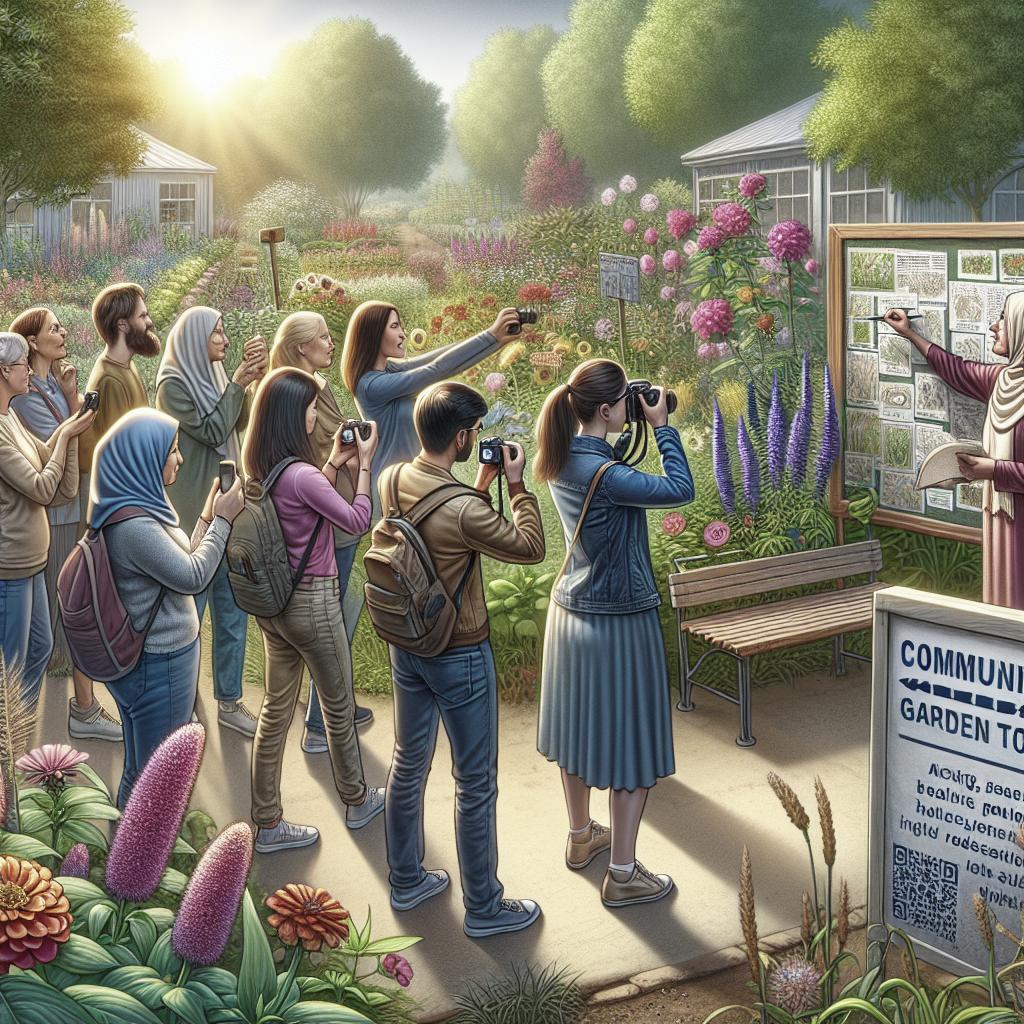Gardening is more than just a hobby; it’s a form of therapy, a way to connect with nature, and a means to create a sustainable lifestyle. In community gardens, experienced gardeners often take the role of mentors, guiding new members through the intricacies of growing their own food and plants. This blog post will delve into the role of a garden mentor, highlighting their responsibilities, offering tips on how to become an effective mentor, and providing resources to further your gardening knowledge. Whether you are a seasoned gardener looking to share your expertise or a novice keen to learn, this guide will equip you with the fundamental tools for successful garden mentorship.
What is a Garden Mentor?
A garden mentor is an experienced gardener who shares their knowledge and skills with new or less experienced gardeners. Mentors are not just experts in horticulture; they are also enthusiastic educators passionate about helping others grow. This role often emerges naturally in community garden settings where seasoned gardeners interact with beginners, offering guidance and creating a sense of community. Essentially, a garden mentor functions both as a teacher and a guide. Being a garden mentor involves more than just answering questions or giving quick tips. It entails a commitment to fostering an inclusive environment that encourages learning and growth. Depending on the community garden’s structure, a mentor might formally pair with a newcomer or provide general guidance to anyone in need of assistance.
What Do Garden Mentors Do?
If you’re considering becoming a garden mentor, you should understand the key responsibilities associated with this role. First and foremost, mentors provide practical gardening advice—from planting schedules and soil preparation to pest control and harvesting techniques. They assess the specific needs and skills of each gardener and offer tailored advice that aligns with individual goals and garden plots. Another critical aspect is demonstrating and guiding proper gardening techniques. This can involve hands-on demonstrations, workshops, or informal garden walks. Mentors often highlight best practices in organic gardening, sustainable practices, and plant care. The goal is to empower new gardeners with the skills and confidence they need to grow their plots successfully. Moreover, garden mentors play a vital role in building a sense of community. They encourage collaboration, share resources, and foster an environment where gardeners feel welcome and supported. By organizing group activities and social events, mentors help build strong bonds among community members.
How to be a Garden Mentor
Becoming an effective garden mentor starts with a genuine passion for both gardening and teaching. Building a positive rapport with your mentees is crucial. Make an effort to get to know them, understand their goals, and establish open lines of communication. This relationship-building lays the foundation for successful mentoring. Flexibility and patience are essential traits for a garden mentor. Gardeners come from various backgrounds and skill levels, so be prepared to tailor your advice to meet diverse needs. Encourage questions and be patient in your explanations, ensuring that your mentees understand and feel comfortable applying the techniques you share with them. Additionally, continuing your own education in gardening can make you a more effective mentor. Stay updated on the latest gardening trends, techniques, and sustainability practices by attending workshops, reading books, and participating in online forums. Being a lifelong learner not only enhances your expertise but also sets an excellent example for your mentees.
Gardening tips, videos, info and more delivered right to your inbox!
To support your role as a garden mentor or further your own gardening knowledge, subscribing to newsletters and online resources can be immensely beneficial. Many websites and organizations offer regular updates packed with tips, instructional videos, and other valuable information. These resources can help you stay on top of gardening trends and offer new ideas to share with your community. Free e-books, downloadable guides, and online courses provide another layer of learning, often delving deeper into specialized topics. Whether you are looking to improve your composting skills, learn more about native plants, or understand advanced organic farming techniques, these resources can provide a wealth of information. Sharing these with your mentees can also help them grow as independent gardeners. Social media platforms and gardening blogs are also excellent avenues for staying connected with the gardening community. Following influential gardeners, participating in gardening forums, and watching how-to videos on platforms like YouTube can equip you with fresh insights and innovative practices to bring back to your community garden.
| Section | Content |
|---|---|
| Introduction | Overview of the role of garden mentors, their importance, and what the post covers. |
| What is a Garden Mentor? | Definition of a garden mentor, their passion for gardening and teaching, and the creation of inclusive learning environments. |
| What Do Garden Mentors Do? | Responsibilities of garden mentors in providing advice, demonstrating techniques, and fostering community. |
| How to be a Garden Mentor | Tips on building rapport, being flexible and patient, and continuing gardening education. |
| Gardening tips, videos, info and more delivered right to your inbox! | Benefits of subscribing to gardening resources, free e-books, and engaging with social media platforms. |


